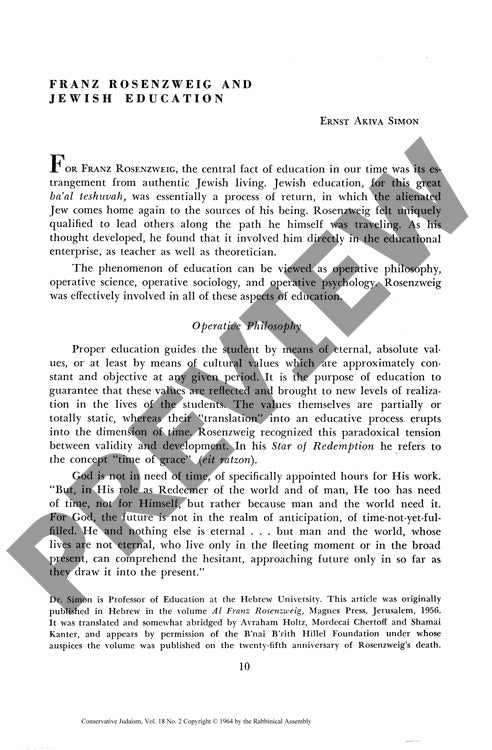Franz Rosenzweig and Jewish Education
Couldn't load pickup availability
In 1920s Germany, as assimilated Jews struggled to reconnect with their religious heritage, Franz Rosenzweig developed a revolutionary approach to Jewish education that continues to influence modern Jewish learning. Through close analysis of Rosenzweig's letters, educational writings, and institutional work—particularly his establishment of the Free Jewish House of Learning in Frankfurt-on-Main—a complex educational philosophy emerges that conceptualizes Jewish education as a process of return for alienated Jews. His framework integrated eternal values with temporal educational processes, evolving from a traditional scholar-teacher model to an innovative dialogue-based approach featuring student-teachers who simultaneously learned and instructed. Examining education as operative philosophy, science, sociology, and psychology reveals how Rosenzweig successfully implemented his theories through adult education programs that merged Jewish content with broader intellectual inquiry. While his German idealist philosophical foundations may limit his accessibility to contemporary audiences, Rosenzweig's educational methodology offers valuable insights for addressing ongoing challenges in Jewish education, particularly the integration of religious and secular learning within diverse Jewish communities.

More Information
-
Physical Description
-
Publication Information
Published 1964
ISBN
-
Publication Credits
Ernst Simon

